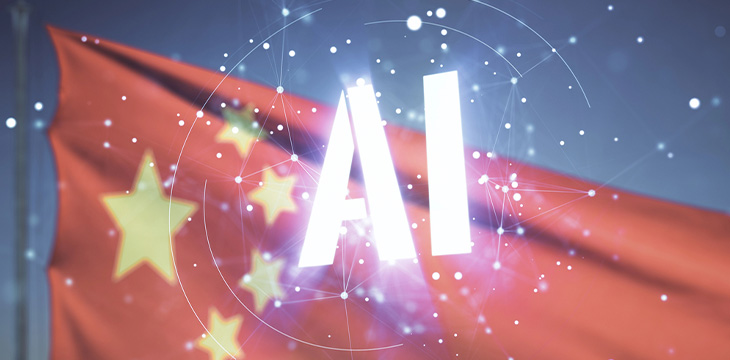
|
Getting your Trinity Audio player ready... |
Days after the unanimous adoption of its sponsored artificial intelligence (AI) resolution, Chinese executives are amplifying the calls for countries to adopt an even pace for development.
Chinese Premier Li Qiang urged developed countries to match the pace of their developing counterparts in AI innovation, citing a slew of attendant benefits. Li made his position known at the World Artificial Intelligence Conference in Shanghai with attendance from several leading AI companies and countries.
The Chinese premier noted that an even approach to AI innovation will be key in bridging the “intelligence gap” between developed and developing countries. Describing AI as the “commonwealth of mankind,” Qiang noted that nearly half of the global population does not have access to AI offerings despite the seemingly rapid pace of adoption.
He disclosed that proceeding in a uniform manner for technology innovation and adoption is the Chinese habit of doing things, hinting at the leaps recorded in 5G technology, navigation systems, and COVID-19 medical technologies.
Apart from the lofty goal of providing 2.5 billion persons with access to large language models (LLMs), the Chinese premier pointed out that China is keen on ensuring responsible development for the technology. In his keynote address, Qiang highlighted the risks stemming from uneven regulatory standards, a trend that could fuel regulatory arbitrage from service providers.
“Developing artificial intelligence is like setting sail on a vast ocean,” said Qiang. “The scenery ahead is exciting, but there will inevitably be storms along the way. As long as we firmly grasp the correct course, work together, and help each other, we will surely reach a better place.”
Last week, a Chinese-backed AI resolution received mass support from the United Nations member states, seeking to democratize AI development among nations and present a united front in facing looming AI challenges.
“The unanimous adoption of the resolution indicates broad agreement among member states to enhance global AI governance through dialogue and cooperation, fully demonstrating China’s responsible attitude and leading role in AI development and governance,” added Qiang.
Going head-to-head against US
China and the United States have separated themselves from the rest of the pack, but rather than favoring industry collaboration, experts are highlighting a brewing cold war between both nations.
For starters, analysts point to the existing trade restrictions by the U.S. against China for high-end AI chips, with Washington citing security concerns as a key reason for the embargo. China, keen to forge its own path, has geo-restricted several AI offerings from the U.S. while rolling out its solutions for global AI regulations.
Chinese authorities are racing against the clock to prevent falling behind the U.S. in AI innovation, a fate that befell the Asian country with other emerging technologies. By hosting the World Artificial Intelligence Conference in Shanghai, pundits say China may have earned some points against its Western rival.
In order for artificial intelligence (AI) to work right within the law and thrive in the face of growing challenges, it needs to integrate an enterprise blockchain system that ensures data input quality and ownership—allowing it to keep data safe while also guaranteeing the immutability of data. Check out CoinGeek’s coverage on this emerging tech to learn more why Enterprise blockchain will be the backbone of AI.
Watch: AI is for ‘augmenting’ not replacing the workforce
Recommended for you
Lorem ipsum odor amet, consectetuer adipiscing elit. Elit torquent maximus natoque viverra cursus maximus felis. Auctor commodo aliquet himenaeos fermentum
Lorem ipsum odor amet, consectetuer adipiscing elit. Accumsan mi at at semper libero pretium justo. Dictum parturient conubia turpis interdum

 11-21-2024
11-21-2024


